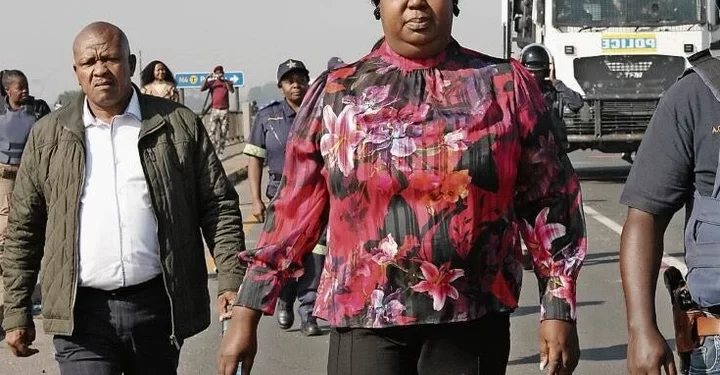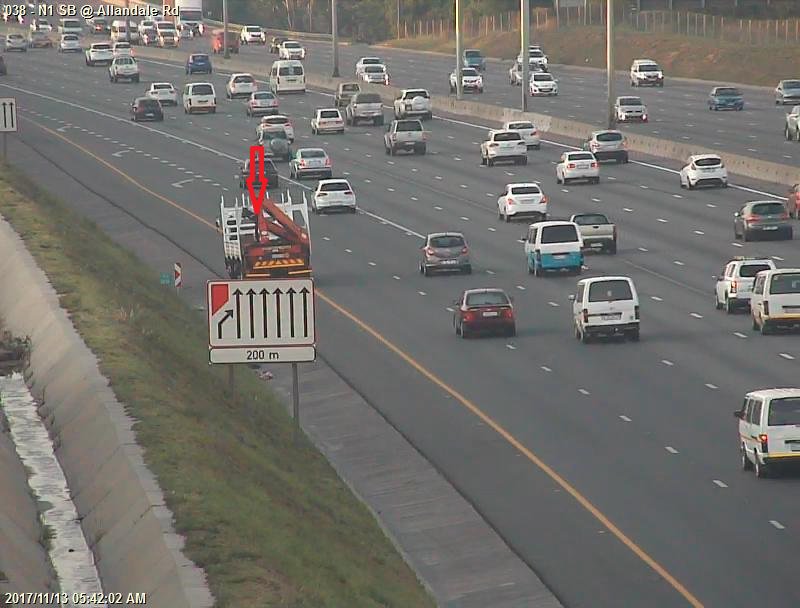The protest, which began as a peaceful demonstration by frustrated residents of eMalahleni, quickly escalated when Mayor Nkalintshana attempted to belittle the concerns of the protesters. With electricity shortages plaguing the region for months, the community’s frustration had reached a boiling point. Their demand for better services was met with an insensitive and derogatory response from the very leader entrusted to address their needs.
Nkalintshana’s remark about the lack of refrigerators in households struck a nerve among the protesters, who viewed it as a callous disregard for their plight. Instead of acknowledging their legitimate concerns, the mayor’s statement seemed to underscore a growing sense of detachment between the ANC leadership and the people they are supposed to serve. Many see it as an example of the arrogance displayed by certain ANC leaders who seem disconnected from the daily struggles of ordinary citizens.
The violent turn of events, though regrettable, highlights the deep-seated frustration and desperation felt by the residents of eMalahleni. It serves as a stark reminder that such dismissive attitudes from public officials can have serious consequences. While violence should never be condoned as a means of expressing grievances, it is evident that the mayor’s statement struck a nerve within the community, leading to an outpouring of anger.
Local authorities were quick to condemn the violent act, emphasizing the need for peaceful dialogue and resolution of issues. ANC party officials have also distanced themselves from Nkalintshana’s comments, stating that they do not reflect the party’s stance or values. The incident has prompted internal discussions within the ANC about the need for better engagement with communities and addressing the underlying issues that lead to such outbursts.
The plight of eMalahleni’s residents is not unique. Across South Africa, many communities face similar challenges, ranging from inadequate service delivery to unfulfilled promises by political leaders. The incident involving Mayor Nkalintshana serves as a wake-up call for both ANC and government officials to reassess their approach to governance and reconnect with the people they serve.
In the aftermath of the violent incident, attention must now turn towards healing and finding a way forward. It is crucial for the community members, local authorities, and ANC representatives to come together in a spirit of cooperation, listening to each other’s concerns and working towards tangible solutions. Constructive dialogue and meaningful action are necessary to restore trust and ensure that the needs of eMalahleni’s residents are met.
This incident serves as a reminder that public officials hold a responsibility to serve and address the concerns of the people. Arrogant and dismissive attitudes only exacerbate existing tensions and contribute to an erosion of trust between the government and its citizens. It is imperative that ANC leaders and officials at all levels take this incident as an opportunity for introspection, to reassess their priorities and reconnect with the communities they represent.
As eMalahleni grapples with the aftermath of this shocking incident, it is our hope that it serves as a catalyst for change. The wounds caused by violence need to be healed, and the grievances of the community members must be addressed. This event should serve as a turning point, prompting a renewed commitment to effective governance, accountability, and improved service delivery.




![R.I.P| Take A Look At The Car That Killed Boss Of Venda [See Pics]](https://ireportsouthafrica.co.za/wp-content/uploads/2022/03/limpopo2-120x86.jpg)
















